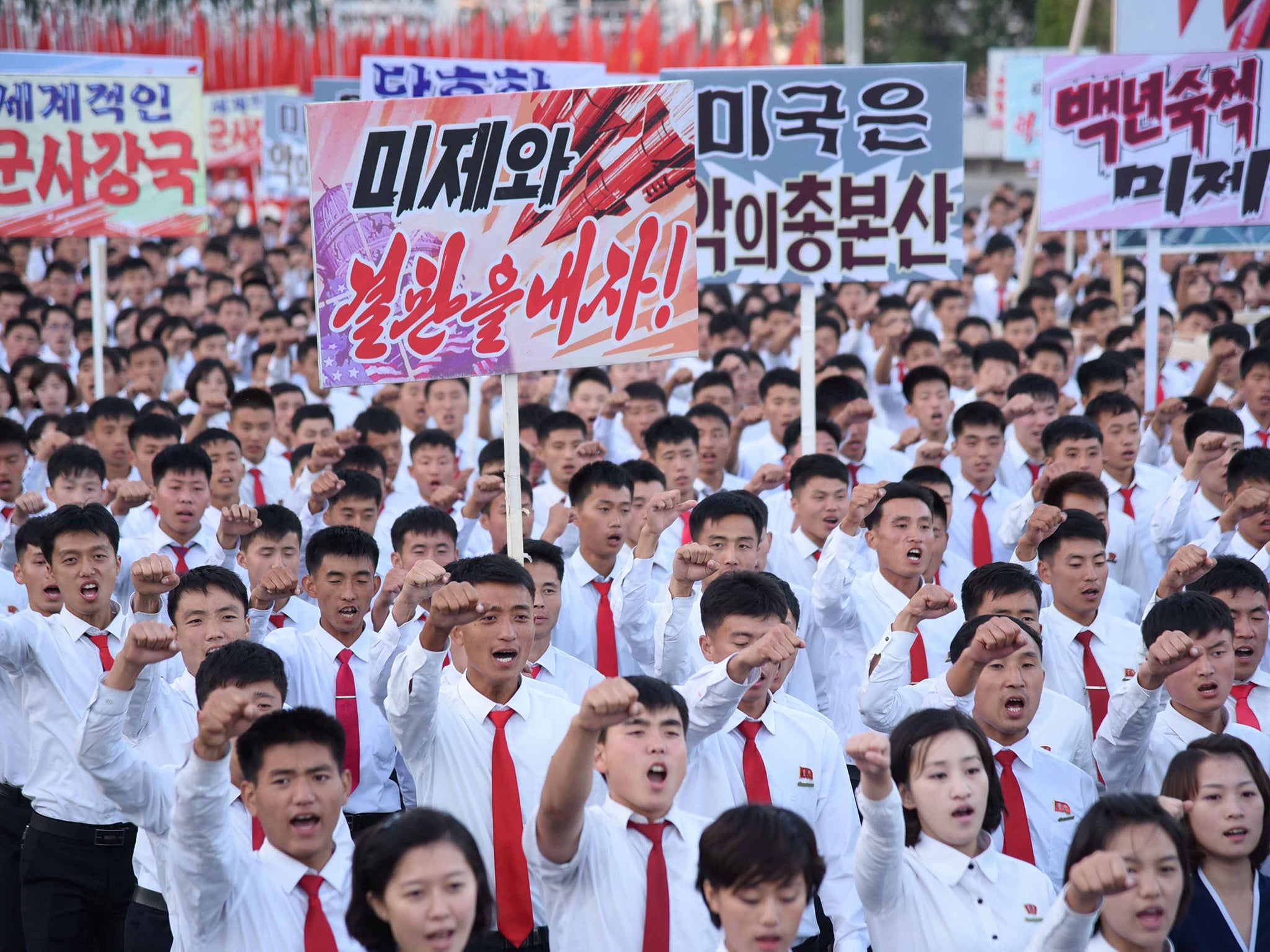North Korea claims almost 5 million have signed up to join its already enormous army

Your support helps us to tell the story
From reproductive rights to climate change to Big Tech, The Independent is on the ground when the story is developing. Whether it's investigating the financials of Elon Musk's pro-Trump PAC or producing our latest documentary, 'The A Word', which shines a light on the American women fighting for reproductive rights, we know how important it is to parse out the facts from the messaging.
At such a critical moment in US history, we need reporters on the ground. Your donation allows us to keep sending journalists to speak to both sides of the story.
The Independent is trusted by Americans across the entire political spectrum. And unlike many other quality news outlets, we choose not to lock Americans out of our reporting and analysis with paywalls. We believe quality journalism should be available to everyone, paid for by those who can afford it.
Your support makes all the difference.North Korea's state newspaper reported Thursday that 4.7 million students and workers have expressed a desire to enlist or reenlist in the nation's army, potentially adding a major boost in manpower to what is already one of the largest armed forces in the world.
It is difficult for outside analysts to gauge the accuracy of the report in the Rodong Sinmum newspaper. North Korean state media has issued similar claims during past moments of tension. Earlier this summer, for example, it claimed that 3.5 million citizens had signed up for the army after the United Nations imposed new sanctions on Pyongyang.
Most estimates suggest that North Korea has an unusually large number of armed forces personnel for its population of 25 million. The U.S. State Department has estimated that North Korea had more than 1.18 million armed forces personnel in 2014, making it the fourth-largest army in the world after China (2.37 million), India (1.41 million) and the United States (1.43 million).
For comparison, Iraq's military in 2003 was estimated to be have 445,000 men for a population of around 26 million people.
This massive standing army comes by design: North Korea's constitution explicitly states that "national defense is the supreme duty and honor of its citizens" and that citizens are required to serve in the armed forces by law. A 2015 congressional report from the Defense Department estimated that four percent to five percent of North Korea's citizens were on active military duty with the Korean People's Army (KPA), while another 25 percent to 30 percent were assigned to a reserve or paramilitary unit and would be subject to wartime mobilization.
The effectiveness of such a force is not totally clear. Accounts from American soldiers who fought in the Korean War almost seven decades ago suggest that the North's solders were unusually good at evasion and determined to win. However, the Pentagon report states that the KPA primarily fields aging equipment based on technology as old as the 1950s, often produced or based on designs from the Soviet Union or China.
A Japanese filmmaker who runs a network of citizens journalists in North Korea claimed last month that due to the country's chronic food shortage much of the standing army was too weak to fight. "[One contact] told me that there was talk of war with the US, but that many North Korean soldiers are in poor physical condition and in no fit state to fight," Jiro Ishimaru told the Guardian newspaper in August.
However, experts suggest that the forward-deployed army would still pose a threat to South Korea and its U.S. allies in a war. In any conflict, North Korea's well-trained special operations forces - estimated to number at least 180,000 military personnel - are widely expected to be used to attack key facilities in South Korea.
Along with the country's rapidly-advancing missile program, its nuclear and biological weapons, and the enormous amount of artillery it has aimed at South Korea's capital, Pyongyang's exceptionally large standing army is yet another reason analysts are hesitant to recommend U.S. military action from North Korea, despite its leader's repeated threats.
Washington Post
Join our commenting forum
Join thought-provoking conversations, follow other Independent readers and see their replies
Comments